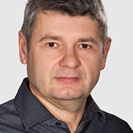Sustainable Electronics
Circuit design • Circular • Circular economy • e-waste • Electronic substrates • Environmentally friendly • green electronics • SDG • sustainability • WEEE
Géczy Attila
associate professor
V1.014
(+36) 1 463-2755
A kutatócsoport tagjai:
Géczy Attila
associate professor
Berényi Richárd
associate professor
Gál László
honorary associate professor
Krammer Olivér
associate professor
Activities of the research team:
The research group is mainly concerned with the sustainability of applied electronic materials, substrates and packages and their substitution by novel materials. Our research, which started in 2010, aims at replacing electronic substrates with biodegradables, culminating in an M-ERA and an H2020 (Pathfinder EIC) call in 2023 and 2024. In addition, circular electronics, waste minimisation technologies are also targeted for research. Research is being conducted along the UN SDGs 9 and 12 (Sustainable Development Goals). The research team also aims to improve electronics manufacturing technology along SDG9 by optimising manufacturing processes to be energy efficient and minimise waste through research on waste minimisation. The strengths of the research group are that its staff have a strong electronics manufacturing technology foundation requiring interdisciplinary knowledge, and that decade of experience have focused globally unique knowledge in the group's work. The results achieved by the research group will be used in the future to inform the practice of electronics manufacturing and waste processing along the lines of the Green Deal and EU sustainability objectives.
Results:
Starting from the initial PLA (polylactic acid) and CA (cellulose acetate) based substrates, the group has now developed, in collaboration with Meshlin Ltd, a novel, fire-retarded, fibre reinforced, biodegradable substrate technology compatible with currents subtractive circuit and surface mount technologies. As a result, the research team is involved in successful projects. The research has resulted in the world's first working Arduino Nano circuit on this substrate. In terms of electronic waste potential, electronics made in this way can reduce waste by up to 70-90% by weight of previously difficult-to-process epoxy/glass fibre-based plastic components. High-frequency characterization of the materials, development of bioleaching-based copper recovery, and further application of circular recycled copper for electronics conductors are underway through international cooperation. We are also conducting composting (outdoor, laboratory) experiments, the results of which are continuously published.
Specialised infrastructure:
PCB production line - FEI Inspect S50 scanning electron microscope - SONIX HS1000 scanning acoustic microscope - Bruker Tensor II infrared spectroscope - Spectro Midex M X-ray fluorescence spectrometer - Dage XD6600 X-ray microscope - Espec and Weiss climate chambers - Coherent AVIA 355 laser micromachining - Epilog Mini 30W laser micromachining - Voltalab PGZ301 dynamic EIS and voltmeter - Agilent Miliohmmeter - outdoor and indoor composting units
Recent projects:
Horizon 2020 2024 | Pathfinder EIC | DESIRE4EU - DESIgning and REcycling sustainable Electronic boards for a EUropean circular economy
2023 M-ERA | Beatrice - Biobased dEgradable flAme reTardant pRInted eCo-Electronics
International links:
Arduino AB., University of Grenoble Alps (UGA, INP), Hochschule für Technik und Wirtschaft (HTW) Dresden, Czech Technical University of Prague (FEL CVUT), Sinano Association, Universite Catholique de Louvain (UCL), AB Chimie, Alba Elettronica
Corporate partners:
Meshlin Ltd. - basic research on fibre-reinforced biodegradable substrates
UniPCB Ltd. - research on the application of fibre-reinforced biodegradable carriers
Arduino AB. - research into sustainable embedded electronics
![👤]()





